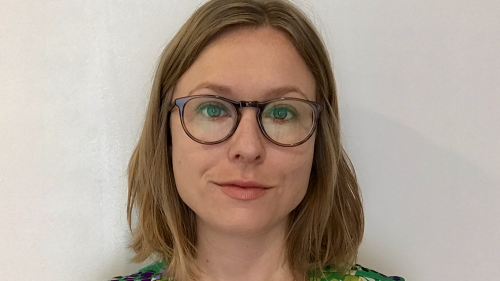
The PRIISM Social Impact Research Fellowship Program is no longer active and taking applications.
Funded by the Moore Sloan Data Science Environment at NYU
Motivation
The field of data science is rapidly changing the world we live in, offering the promise of innovation, efficiency, and deeper understanding, while also raising complicated ethical, legal, inclusivity, and social policy concerns. In an increasingly data-centric world, it is more important than ever to think about how data science can be used to positively impact society, and how aspiring data scientists can advance these efforts for the larger social good. However, there remains a disconnect between data science expertise and social impact research. As one model to address this need, the PRIISM Center, sponsored by the Moore Sloan Data Science Environment at NYU, has created a competitive social impact research fellowship program that will award funding and provide mentorship to five NYU graduate students, with an emphasis on awarding fellowship to students from groups currently underrepresented in Science, Technology, Engineering, and Math (STEM) fields. Each student awarded a fellowship will be paired with a senior NYU faculty member who is heading up a data science project with direct social impact, providing a rare opportunity for both academic and professional development.
Projects
Stress, Home Environment, Language & Learning (SHELL) Study
PI: Natalie Brito
Understanding how the early home environment impacts trajectories of language and cognitive development is crucial for identifying early risk and resilience factors associated with later school readiness. The Stress, Home Environment, Language & Learning (SHELL) study examines how caregiver stress and the home language environment influence maternal stress, parent-child interactions, and developing cognitive skills during the first two years of life. The ultimate goal of this study is to understand how to best support caregivers and create environments that foster healthy child development.
The Segregation of the School Segregation Literature: A Quantitative Case Study of the Bibliographic Citation Networks
PIs: Ying Lu and L'Heureux Lewis-Mccoy
In academic settings, citations are important ways knowledge and ideas are disseminated. Past research has shown that the patterns of citations in the academic settings are often highly clustered. Many factors can determine whether a research product is being cited, including topics/areas, publication outlets, social impact of the authors and social network of the authors. Research has also shown implicit bias could exist in research citations. In this project, we aim to conduct a bibliometric network analysis of peer-reviewed publications (articles and books) in the area of US-based school segregation research. Specifically, we are interested in the collaboration pattern and citation patterns as they relate to race, gender, age, institutional affiliation, academic lineage etc.
Jail Data Initiative
PI: Anna Harvey
The problem of over-incarceration has received considerable attention of late. The focus of this attention, however, has largely been on state and federal prison systems. Often overlooked are local jails. In any given year, county jails will see approximately 11 million new admissions, often because defendants lack the funds to post bail, or even because they lack the funds to pay their fines.
Through the generous support of Arnold Ventures, our data science team is crawling daily county jail rosters and criminal case records in over 1,000 counties. Using these data we will be able both to identify counties that are systematically jailing defendants pre-trial and/or post-fine, and to estimate the impacts of these practices on recidivism.
A Consensus Among Asset Managers on Fostering Counterintuitive Skill Development
PI: Tracy Van Holt
Asset managers have been making sense of sustainability (i.e. environmental, social, and governance) issues in investment decisions. Our ethnographic work shows that while they are experts in applying traditional finance in their investment decision making processes, the demand for sustainability requires new skills that are counterintuitive to traditional finance. Our overall objective is to understand the role of organizational practices and structures in developing these skills. Using an online cultural consensus survey, we will test whether there is a shared culture on the practices and structures that will transform asset management. The student will help refine the survey, obtain IRB approval, compile the respondent list, and analyze these data.
THINK: Tracking Hope in Nairobi and Karachi
PIs: Elisabeth King, Dana Burde, Jennifer Hill and Daphna Harel
THINK examines access to university in contexts of conflict/fragility and the implications of access on outcomes such as hope, civic engagement, and tolerance. Using a regression discontinuity design, we collected panel survey data from youth in Nairobi and Karachi who just made it into university, as well as those who just missed admission, based on standardized test scores. With a wealth of original data, the THINK team is ready to analyze our findings and write up our results. Findings will have important implications for the many governments and organizations investing in education in the hopes of mitigating violence in places where stakes are high. THINK also builds capacity and impact among our partners: educational institutions and local organizations in Kenya and Pakistan.
Fellows

Evaristus Ezekwem
Evaristus Ezekwem is a master’s student at NYU’s Center for Data Science. “Eva” as he is fondly called is a travel-loving adventurer who is on a mission to impact millions of lives one person at a time. At his core, he is a gentle soul and a witty character who genuinely wants to help people around him succeed in whatever they do no matter who they are or where they are from.
Eva graduated from the University of Port Harcourt in Nigeria with a bachelor’s in Electrical/Electronics Engineering. Before pursuing a master’s degree at NYU, he spent some time at Microsoft and Loctech IT Training Institute where he worked on leveraging data analytics, machine learning, and Azure cloud technologies to help businesses scale their operations.
As part of the PRIISM Social Impact Research Fellowship, Eva is presently working under the supervision of professors Ying Lu, R. L'Heureux Lewis-McCoy and Sonya Horsford on a project titled “The Segregation of the School Segregation Literature: A Quantitative Case Study of the Bibliographic Citation Networks". The project focuses on using data science methodologies to model racial segregation among authors who published scholarly articles on school segregation. At a time when our society is deeply fractured by systemic racism and segregation, this research aims to set up a basis for policy discussion regarding racism, inclusiveness and segregation within academia, specifically in the United States. Eva is also interested in machine learning applications to real estate and finance as well as large scale distributed data processing systems.
While he is not working, you can catch Eva playing video games, cooking or playing table tennis. He loves art as well and draws occasionally as well.

Chutang Luo
Chutang Luo has an undergraduate degree in Information Management and Information Systems from Sun Yat-sen University in China. Currently, she is a master’s student in the Data Science program and will graduate in 2021. After graduation, she plans to become a data scientist, leveraging data analytics to help companies make smarter data-driven decisions and maximize outcomes.
Chutang is passionate about applying data science techniques to extract insights from large-scale datasets and to solve real-world problems. She also wants to help the disadvantaged and make contributions to help tackle some social issues. She believes in working towards equal rights for all and improving others’ livelihoods through her work.
As a PRIISM Social Impact Research Fellow, Chutang is participating in the Jail Data Initiative project led by PI Anna Harvey and is helping compile one of the largest databases of daily county jail rosters and criminal case records. She looks forward to taking a deeper look at the data the project has collected and gaining useful insights through data analytics.

George Perrett
Before coming to NYU, George Perrett was awarded a Master's of Public Health from the University of Michigan and a Bachelor of Arts in Psychology from the University of Wisconsin. In his prior studies, George focused on the development and evaluation of tailored health and educational interventions. Currently, he is a second-year Master's student in the Applied Statistics program at NYU and will be graduating fall 2020.
After graduation, George plans to either work as a Data Scientist or pursue a PhD. He is interested in comparing traditional data sources, such as survey methodologies, with rising sources of data such as social media posts and online data. He particularly enjoys the interdisciplinary aspects of data science He believes that answering research questions is more than just a matter of analysis. It requires working with subject matter experts, thinking about study design, and then using computer programing to gather and prepare data.
While working in the public health sector, George gained insights into the importance of socially impactful work. He believes small investments in social impact can lead to dramatic upstream changes that are not only beneficial to other individuals but also society and culture more broadly.
George is a research fellow on the project entitled, “A Consensus Among Asset Managers on Fostering Counterintuitive Skill Development" led by PI Tracy Van Holt. On this project, he has focused mainly on understanding Environmental, Social and Governance (ESG) investing. It has been exciting for him to see the private sector’s increasing interest in socially relevant pursuits. Methodologically, he has enjoyed expanding his skills in textual data analysis while learning more about the challenges and benefits that come with using text as data.

Dorothy Seaman
Before joining the Tracking Hope in Nairobi and Karachi (THINK) project led by Professors Dana Burde and Elisabeth King, Dorothy Seaman worked in K-12 education domestically for seven years. Most recently she was a quantitative research consultant at the NYC Department of Education and prior to that she worked in program evaluation and data management.
Dorothy is a part-time student in the MS in Applied Statistics for Social Science Research (A3SR) program at NYU Steinhardt. Through the program, she feels that she has gained an incredible methodological and statistical skill set that she hopes to build on and improve in future work. After graduating in December 2020, her goal is to continue using research and evaluation to understand how social programs and policy impact equity, access, and outcomes.
Dorothy enjoys research and data science because they are great tools for understanding problems, uncovering inequity between groups, and providing evidence to support theory and decision-making. She believes data and research are interesting and important because they can play a critical role in alleviating social problems and supporting social policy.
As a PRIISM Social Impact Research Fellow on the THINK project, Dorothy enjoys working on an interdisciplinary team and learning about the education systems, schools, and student experiences in Kenya and Pakistan. This project has allowed her to hone her statistical skills by performing causal analyses and by exposing her to new statistical methods and survey research concepts.
Zijian Zhang
Zijian Zhang is called “John” by his beloved family and friends. John graduated from The Pennsylvania State University with bachelor’s degrees in Economics and Applied Statistics. In his prior studies, he focused on game theory, collusions, and externalities in economics of business and law.
John is a master’s student in Applied Statistics for Social Science Research (A3SR) program at NYU Steinhardt and graduating in 2021. As an undergraduate and graduate student, John has served as a grader or teaching assistant for eight different classes on various levels, so he recognizes the importance of education as well as the positive impacts, or externalities, it can produce. He believes that education is the key to dealing with inequity and social polarization and that it can help children reach their full potential to help fight against poverty.
As a PRIISM Social Impact Research Fellow, John is working on a project entitled “Stress, Home Environment, Language & Learning (SHELL) Study” led by PI Natalie Brito. In this project, he examines associations among family leave, infant brain function, and maternal stress. He was shocked to learn that the United States still lacks a federal policy on paid leave and wants to contribute his statistical skills by performing causal analysis to understand the implications of a policy that seeks to protect vulnerable populations.
After graduation, John plans to work as a data scientist or pursue a PhD. He is fascinated by novel and emerging statistical methods and wants to bring these new methods to fields conventionally using qualitative methods, such as the fine arts. In his leisure time, John is an art lover and his favorite artists are Caravaggio, Piet Mondrian, Jackson Pollock, and Cy Twombly.
Timeline
February
Solicit project proposals and student applications.
March
Project proposals submitted by 3/13; Fellows applications due by 3/20; Proposals and applicants receiving funding announced by April 3rd.
May
Individual scoping meetings with each team to create work plans
June-December
Fellows work on projects
September
Check-in event to get feedback on work-in-progress
December
Final Fellowship Results Event; Fellows present their work; project PIs prepare final reports on work accomplished
January 2021
Disseminate results
MS, Applied Statistics for Social Science Research
PRIISM is highly integrated with the academic program of Applied Statistics for Social Science Research. Learn advanced quantitative research techniques and apply them to critical policy issues across social, behavioral, and health sciences.
Degree Details How to Apply
